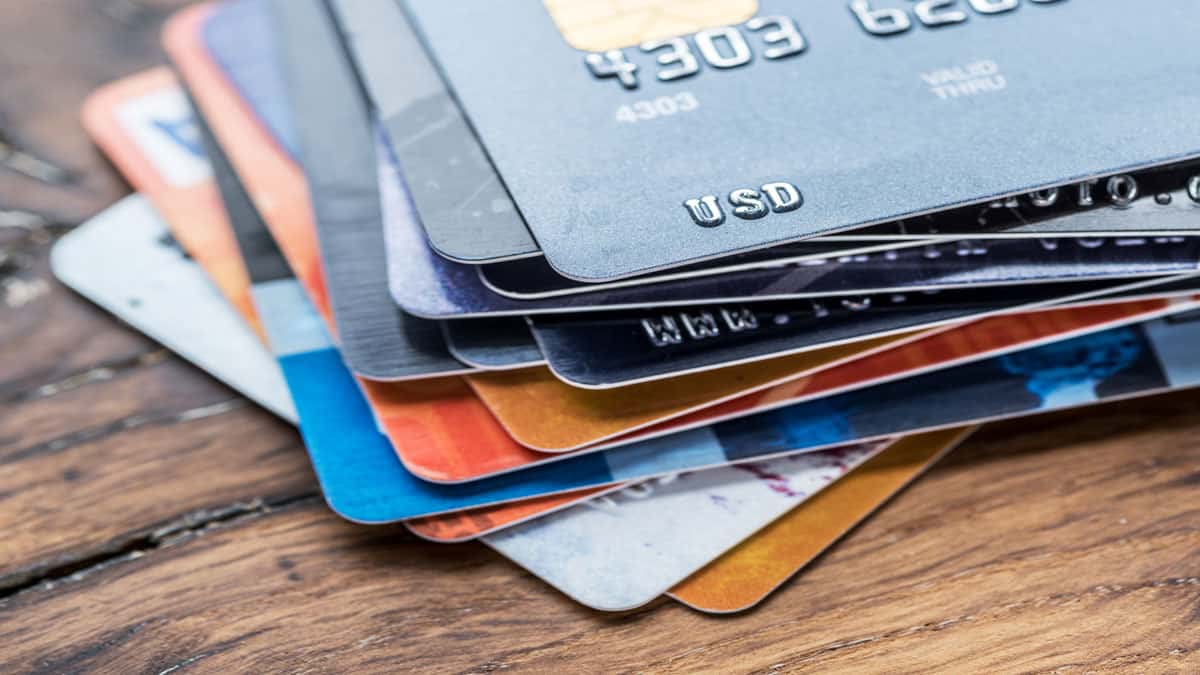THIS POST MAY CONTAIN AFFILIATE LINKS. PLEASE SEE MY DISCLOSURES. FOR MORE INFORMATION.
Ever feel like you wasted money trying to save it?
You’re not alone.
In our quest to stretch our dollars as far as possible, many of us have tried so-called “money-saving hacks” that seemed clever at the time but ended up causing more headaches than savings.
From buying cheap goods that fell apart after a few uses to cutting corners on services that cost more in the long run, these pseudo-frugal maneuvers often backfire spectacularly.
We’ll explore 18 money-saving tricks that most people have come to regret, some more than others.
Whether you’ve tried any of these yourself or simply want to avoid potential pitfalls, read on to learn which cost-cutting strategies should give you serious pause before attempting to “save” money.
You might be surprised by what lands on this list of dubious deals.
#1. Buying in Bulk

Buying huge tubs of peanut butter and 50 packs of toilet paper are great moves if you have a family.
But if you are single, saving money by purchasing larger quantities could be a waste as the product will expire before you can use it.
#2. Don’t Go To School

This hack suggests that you can save money by not attending college or university, and instead going straight into the workforce.
But for most people, this isn’t a realistic option.
Even if college tuition is expensive, many jobs require a degree or other certification.
Additionally, college can open up career paths that wouldn’t otherwise be available to somebody without a higher education.
#3. Looking For The Cheapest Prices

Everyone loves a good bargain.
Finding the best deal can be a thrill that leaves us feeling smart and accomplished.
But when buying the cheapest goods, the cost can be more than what we saved from our wallets.
Cheap items may save us money in the moment, but that temporary satisfaction quickly fades when the item falls apart or doesn’t work correctly.
When I bought my first house, I cheaped out on bath mats by purchasing the lowest-priced ones.
All was good at first, but the rubber back ripped off after I washed them.
The money I saved went down the drain as I had to buy another set.
#4. DIYing Important Things

DIY projects have become increasingly popular as individuals looking to save money and put their own personal touch on home improvements, repairs, and renovations.
However, while tackling a project on your own can seem appealing, it is important to consider the long-term costs.
In many cases, DIY projects cost more money and time than hiring a professional.
Not only do you have to purchase the necessary materials and tools, but you also risk making costly mistakes and potentially damaging your home.
Take the case of replacing the brakes on your car.
It seems like a simple job, but make a mistake, and you could risk your life.
#5. Not Spending Money on Fun

Many of us have been conditioned to believe that saving money means cutting out all the fun things in life.
We skip social events, let our gym memberships lapse, and avoid spending money on things that bring us joy.
The problem with this mindset is that it can backfire.
Think about it. When we deny ourselves the things that make us happy, we become stressed, burnt out, and unhappy.
When I was trying to dig out of credit card debt, I stopped going out with my friends to try to save money.
All was good initially, but then I became angry that I couldn’t go out with them.
I ended up rebelling and overspending as a result.
To fix things, I gave myself a small amount of fun money to spend to have fun still and pay down my debt.
#6. Cutting Your Own Hair

The desire to save money is a powerful motivator for many people.
And when it comes to haircuts, it’s easy to see why cutting your own hair might seem like a financially savvy move.
But as anyone who’s ever tried to give themselves a trim knows, things can quickly go awry.
Whether it’s an uneven cut or an accidental buzzed patch, the mistakes can add up, and that’s not even considering the time and energy it takes to do it yourself.
Ultimately, what started as an effort to save a few bucks can cost more money (not to mention frustration) in the long run.
#7. Shopping Sales

Don’t get me wrong, shopping for deals is a smart move, if you know the sale price is a deal.
Too often we see the big red sale sign and thinks it’s a deal when at another store, the same item not on sale is less expensive.
#8. Buying Into Credit Card Rewards

Opening many credit cards to earn free travel and cash back sounds like a dream.
But you can easily find yourself in a mountain of debt if you aren’t careful.
The reality is that credit card companies offer these rewards because they make more money in the long run.
Most times, people will overspend and then pay interest on their debt, which is more than the rewards they earn.
The best advice is to figure out the best times to go and book wisely so you can save money if you want to travel cheaply.
#9. Couponing

Many people regard couponing as a smart financial choice that can help us get a good deal and keep a little extra cash in our pockets.
But those who fall into this trap soon realize that the time and effort required to find and organize coupons, combined with the restrictions and limitations that often come with them, ultimately cost them more than they save.
Not only does the constant search for coupons eat up valuable time, but it can also lead individuals to make purchases they wouldn’t have otherwise made just to use a particular coupon.
#10. Shopping at Dollar Stores

It’s easy to be lured into the world of dollar stores, as everything seems cheap and affordable.
Who doesn’t like a bargain, right?
But the truth is, shopping at dollar stores can be a major mistake.
The items are often poorly made and don’t last long, leading to the need for frequent replacements.
The low prices can also trick shoppers into buying more than they need, adding up to a hefty bill at checkout.
Many times the size of the products is smaller as well, making the amazing deal not so great.
And let’s remember the time wasted searching through crowded aisles and sifting through disorganized shelves for that one item that may or may not be there.
#11. Wasting Time Trying To Find Deals

Sometimes we get so focused on finding the absolute best deal that we forget the value of our time.
It’s easy to fall into the trap of wasting hours scouring the internet for coupons or hopping from store to store to save a few dollars.
But we don’t realize that time is valuable, and every minute we spend searching for deals is time that we could spend on something more productive or enjoyable.
Not only that but constantly searching for bargains can lead us to make impulse purchases or buy items that we don’t truly need, costing us even more money in the long run.
#12. Making Your Own Laundry Detergent

Making your own laundry detergent seems like a frugal and simple solution to save some cash, but for many, it can become a costly and time-consuming endeavor.
Creating homemade laundry detergent requires specific ingredients that are not always cheap or readily available.
Once you have all the ingredients and the recipe, mixing and preparing the detergent can take hours.
Additionally, the effectiveness of homemade detergent may not always match the store-bought varieties, leading to the need for costly rewashing or even replacement of the clothing.
#13. Buying Cheap Paper Towels

If you use a lot of paper towels, you might think buying cheap paper towels is a cost-effective solution.
But it can ultimately cost you more money in the long run.
Cheap paper towels are made with lower-quality materials, so they tear easily and absorb less liquid.
This means you’ll have to use more sheets to clean up spills and messes and may need to replace rolls more frequently.
Investing in higher quality paper towels may seem like a bigger expense upfront, but in the end, it will ultimately save you money and hassle in the long run.
Another solution is to buy some washcloths and use them for the things you usually use paper towels on.
#14. Driving to Find The Cheapest Gas

Many think driving around to find the cheapest gas prices is a smart way to save money.
However, they fail to factor in the cost of their time, gas, and wear and tear on their car.
The few cents they may save per gallon are quickly eaten up when they spend extra time and gas driving from station to station.
Additionally, constantly starting and stopping the car burns more fuel and puts unnecessary wear and tear on the engine.
In the end, it’s often more cost-efficient to fill up at a nearby gas station, even if the prices are a few cents higher.
#15. Putting Off Health Care

When caring for our health, it’s easy to rationalize that skipping a check-up or putting off that nagging pain is a smart financial move.
After all, doctor’s visits can be pricey, and taking time off work can be a hassle.
However, pushing aside our health concerns can lead to more money spent and a lower quality of life.
Ignored symptoms can become serious problems, resulting in costly treatments and procedures.
Even routine screenings and preventative care can cost more if neglected, as catching issues early on can often lead to simpler and less expensive interventions.
#16. Grow All Your Veggies

Growing all of your own veggies certainly seems like an attractive way to save on groceries.
While growing some extra veggies can be fun and helpful, in reality, it’s not practical for most people to grow all they would need.
It takes a lot of time and effort to grow enough food to sustain yourself, and the required gardening tools can be quite expensive.
Additionally, you won’t have access to the variety of produce that you would be able to purchase in the store.
Plus, if you live in an area with extreme weather, growing food may not even be possible.
All of these factors make it difficult for people to rely solely on homegrown produce as a way to save money on groceries.
#17. Buy Generic Brands

Generic brands are almost always cheaper than their name-brand counterparts, but that doesn’t mean they’re necessarily better for your budget.
Often, the price difference is negligible and doesn’t make a massive dent in your overall savings.
A better option? Look for sales and coupons that will help you save money without compromising quality.
Keep an eye out for store coupons, special offers, and discounts that can reduce the cost of name-brand products without sacrificing quality.
#18. Planned Purchase

Generally, subscriptions can be a trap to commit you to spending money, but if it’s for an item you will always use, it could save you a bundle.
Subscription services are a great way to save money in the long run, especially if you’re buying products regularly or using them frequently.
If you’re going through items quickly, consider signing up for a subscription service to get discounts on bulk purchases.
Plus, many services offer additional perks like free shipping or exclusive access to new products.
How To Get Free Money

The idea of free money sounds like it can’t be true. But it actually is.
There are many ways you can get free money, from playing games, to watching videos, and more.
Here are the best ways you can get free money without having to work for it.
How To Save Money When You’re Broke

When you have no money, the idea of saving sounds impossible. In fact, for many people, the idea never crosses their mind because they are only focused on getting money to survive.
But there are steps you can take to actually save money even when you are broke. Doing so will help you change your financial life faster than you thought possible.
HOW TO SAVE MONEY WHEN YOU’RE BROKE
Save Money On Groceries

It’s no secret that grocery shopping is a significant expense every month. While most of us know a few ways to reduce this bill, there are many other simple things we can do.
Learn the easy tricks to spend less on groceries and pocket some savings.
LEARN HOW TO SPEND LESS MONEY ON GROCERIES
Fun Money Saving Challenges

Do you find it boring to save money?
If you are motivation by turning things into a game, check out these money saving challenges. There is a game for you that will make saving fun and exciting so that you make it a priority to save money.
49 FUN MONEY SAVING CHALLENGES
Learn How To Save $100K

Saving money can be hard, especially if you are looking to have $100K in the bank.
But while it feels difficult, don’t let this stop you. Here is how you can save $100,000 in nine steps.
I have over 15 years experience in the financial services industry and 20 years investing in the stock market. I have both my undergrad and graduate degrees in Finance, and am FINRA Series 65 licensed and have a Certificate in Financial Planning.
Visit my About Me page to learn more about me and why I am your trusted personal finance expert.

